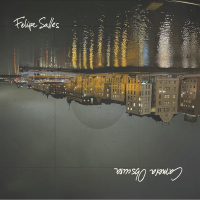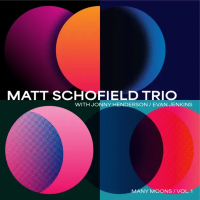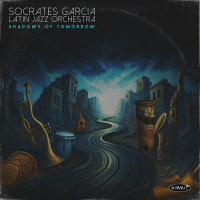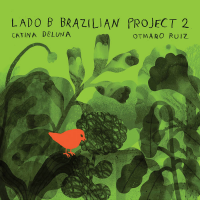Home » Jazz Articles » Bailey's Bundles » The Allman Brothers Band In Five Covers
The Allman Brothers Band In Five Covers

Courtesy GAB Archive
Duane Allman
guitar1946 - 1971
 The Allman Brothers Band
The Allman Brothers Band "Statesboro Blues"
At Fillmore East
Capricorn Records
1971
"Statesboro Blues" was the B-side to "Three Woman Blues" recorded by William Samuel McTier, aka

Blind Willie McTell
guitar, 12-string1898 - 1959

Taj Mahal
guitar and vocalsb.1942

Ry Cooder
guitarb.1947
Jesse Ed Davis
guitar, electricThe March 13, 1971, first show performance released on the original 2-LP At Fillmore East is almost a perfect electric blues. Duane Allman's slide guitar is flawless when compared to other available performances.

Gregg Allman
organ, Hammond B31947 - 2017
Barry Oakley
bass
Dickey Betts
guitar, electric1943 - 2024
Blind Wille McTell, "Statesboro Blues" Victor Records 38001, recorded October 17, 1928, B-side to "Three Women Blues."
The Allman Brothers Band, "Statesboro Blues" At Fillmore East (Capricorn Records, 1971), recorded March 12, 1971, second show.
 The Allman Brothers Band
The Allman Brothers Band "Trouble No More"
Live at the Atlanta International Pop Festival July 3 & 5, 1970
Epic Records
1970
Following the standard concert opener, "Statesboro Blues," Duane Allman liked to keep the temperature high with his arrangement of

Muddy Waters
guitar1915 - 1983

Sleepy John Estes
guitar, acoustic1899 - 1977
The performances captured on Live at the Atlanta International Pop Festival July 3 & 5, 1970 are among the best sonically (especially for soundboard recordings). "Trouble No More" is especially notable for emerging from the initial twin-drum opening immediately at tempo and the clean separation of instruments from the mix. Gregg Allman's vocals are more inspired and better captured here than later live recordings. Dickey Betts' rumba rhythm guitar behind Gregg's vocals and Duane's slide guitar accompaniment, is readily heard and exists apart from the "lead bass" figures Barry Oakley plays. Betts' solo rings like a bell, subdued and calculated, leading to Duane's slide guitar solo, free and rollicking, on its way to the perfection of later performances. This performance finds the Allman Brothers Band developing its chops eight months before the Fillmore East shows. It shows the band's ability to find a good time in each performance and generously return it to the audience.
Muddy Waters, "Trouble No More" Chess Records 1612 A, recorded November 3, 1955 -A side to "Sugar Sweet."
The Allman Brothers Band, "Trouble No More" Live at the Atlanta International Pop Festival: July 3 & 5, 1970 (Epic Records, 2003), Recorded July 3, 1970.
 The Allman Brothers Band
The Allman Brothers Band "Stormy Monday"
Live From A&R Studios
The Allman Brothers Band Recording Company
1971
"Call It Stormy Monday (But Tuesday Is Just as Bad)" is the proper title of the 1947

T-Bone Walker
guitar, electric1910 - 1975

Bobby Blue Bland
vocals1930 - 2013
The version performed in concert was based on Bobby Bland's recording, expanded to over nine minutes with improvised soloing. The song's arrangement consisted of the band format of vocals, two electric guitars, bass guitar, organ, and drums. Performed at an uncharacteristic slow tempo where this is the introduction followed by vocals, and then solos. Duane Allman solos first, with Gregg Allman's organ solo directing the song into several jazz-waltz choruses. Betts solos before the vocal coda where the band definitively concludes the song. The "Stormy Monday" performance from the August 26, 1971 performance at New York City's A&R Studio is clean and well-delineated. The Instruments are effectively separated just behind Gregg Allman's vocals centrally located in the mix. Duane Allman begins his solo softly and simply, quickly building its gravity in the first chorus to explode in the second, where he delivers a master class on drama in an electric blues guitar solo. Gregg gives a jazzy assertive solo leading to Dickey Betts' two extroverted solo choruses. Gregg closes the song with his full-throated vocal coda. The Allman Brothers Band provided this as the apotheosis arrangement and performance of "They Call It Stormy Monday (But Tuesday's Just At Bad)"
T-Bone Walker, "They Call It Stormy Monday (But Turesday's Just As Bad)" Black & White Records, BW 637, recorded September 13, 1947 -B side to "I Know Your Wig Is Gone."
The Allman Brothers Band, "Stormy Monday" The Allman Brothers Band: Live From A&R Studios, New York, August 26, 1971 (Allman Brothers Records, 2016).
 The Allman Brothers Band
The Allman Brothers Band "You Don't Love me"
S.U.N.Y. at Stonybrook: Stonybrook, NY 9/19/71
The Allman Brothers Band Recording Company
1971/2003
Willie C. Cobbs was born in Smale, Arkansas, a Delta community long gone, once located in the crook made by the intersection of Highways 49 and 79 in Monroe County outside of Brinkley on the way to Helena-West Helena. This is music country, the area being the childhood homes to

Louis Jordan
saxophone, alto1908 - 1975

Sister Rosetta Tharpe
guitar1915 - 1973

Luther Allison
pianob.1939

Levon Helm
drums1942 - 2012
Eddie Boyd
piano1914 - 1994

Bo Diddley
guitar1928 - 2008

Sammy Lawhorn
guitar, electric1935 - 1990
"You Don't Love Me" was added to the Allman Brothers set list on or before their appearance at SUNY Stony Brook New York on July 26, 1970. For this discussion, we use a performance of the song from a SUNY Stony Brook appearance a year later on September 19, 1971. This performance of "You Don't Love Me" is the lengthiest in the Allman Brothers catalog, clocking in at 25:47. Duane opens the song riffing off the riff, embellishing effectively, before Barry Oakley enters, setting the momentum for Gregg Allman's vocal choruses. Duane is in full control soloing freely and outside of earlier song performances. He often used "You Don't Love Me" as a vehicle to present a snippet of King Curtis' "Soul Serenade," but not in this performance. Betts is given equal solo space, effectively juxtaposing the two guitarists' disparate styles: Duane all r&b fire and Betts all country finesse. Chronologically, these Stonybrook shows occurred six months after the Fillmore East shows and five weeks before Duane's death. Like "Whipping Post" and "Mountain Jam," "You Don't Love Me" was an Allman Brothers showpiece, a vehicle for the invention and improvisation that made the name of the early band.
Willie Cobbs, "You Don't Love Me" Mojo Records, 2168, Recorded 1960 -A side to "You're So Hard To Please."
The Allman Brothers Band, "You Don't Love Me" S.U.N.Y. at Stonybrook: Stonybrook, NY 9/19/71 (Allman Brothers Records, 2003)
 The Allman Brothers Band
The Allman Brothers Band "One Way Out"
Eat A Peach
Capricorn
1972

Sonny Boy Williamson II
harmonica1897 - 1965

Elmore James
guitar, slide1918 - 1963
Of all Allman Brothers performances, "One Way Out" from the closing of Fillmore East, was considered by engineer and producer Tom Dowd to be the definitive treatment of the song. It is the most perfect electric blues committed to record. Betts introduces the song with a funky, rolling figure not unlike "You Don't Love Me," accompanied by subdued support from drummers
Butch Trucks
drumsElmore James, "One Way Out" Sphere Sound Records 702, B-side to "My Bleeding Heart" recorded in late 1960, released posthumously in 1965.
The Allman Brothers Band, "One Way Out" Eat A Peach (Capricorn Records, 1972)
Tags
Comments
About Allman Brothers Band
Instrument: Band / ensemble / orchestra
PREVIOUS / NEXT
Support All About Jazz
 All About Jazz has been a pillar of jazz since 1995, championing it as an art form and, more importantly, supporting the musicians who make it. Our enduring commitment has made "AAJ" one of the most culturally important websites of its kind, read by hundreds of thousands of fans, musicians and industry figures every month.
All About Jazz has been a pillar of jazz since 1995, championing it as an art form and, more importantly, supporting the musicians who make it. Our enduring commitment has made "AAJ" one of the most culturally important websites of its kind, read by hundreds of thousands of fans, musicians and industry figures every month.
Go Ad Free!
To maintain our platform while developing new means to foster jazz discovery and connectivity, we need your help. You can become a sustaining member for as little as $20 and in return, we'll immediately hide those pesky ads plus provide access to future articles for a full year. This winning combination vastly improves your AAJ experience and allow us to vigorously build on the pioneering work we first started in 1995. So enjoy an ad-free AAJ experience and help us remain a positive beacon for jazz by making a donation today.

Atlanta
Concert Guide | Venue Guide | Local Businesses
| More...










 Buy Now
Buy Now

















